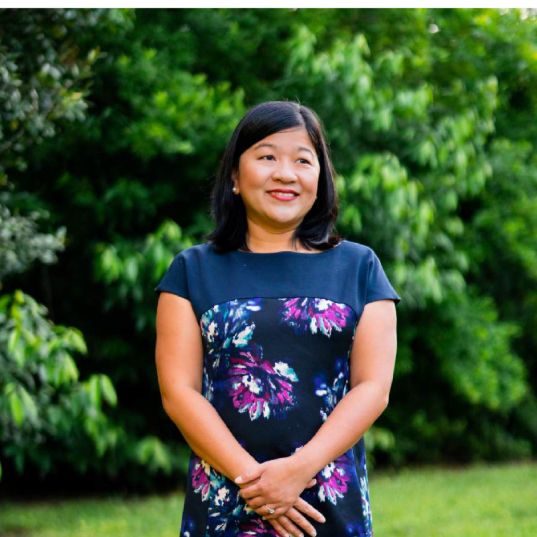Navigating Social Anxiety Therapy Options in Jacksonville
Navigating Social Anxiety therapy in Jacksonville can include in-person sessions, virtual teletherapy, individual counseling, and group therapy—each with unique benefits. In-person care can be ideal for structured exposure work and building comfort in real-world settings across neighborhoods like Riverside, San Marco, Mandarin, and the Beaches. Teletherapy offers flexibility and privacy, especially helpful in a sprawling city with I-95/I-295 traffic and JTA bus or Skyway timing. Individual therapy provides a personalized pace and targeted strategies for Social Anxiety, while group therapy adds peer support and real-time social practice. MiResource’s directory lets you compare providers by location, specialization, and therapeutic approach to find the right fit.
Jacksonville’s size and diverse neighborhoods can influence therapy choices, from commute considerations to parking near Downtown or Southside offices. If you rely on JTA routes or prefer staying close to UNF, Arlington, or the Northside, MiResource helps you filter options to match your schedule and transportation needs. Those seeking evening or weekend teletherapy can quickly identify clinicians experienced in Social Anxiety who offer secure virtual care. For skills-based group formats or exposure-focused individual sessions, you can review provider bios, modalities, and insurance details side-by-side. MiResource is a trusted, easy-to-use tool for exploring and comparing Social Anxiety providers across Jacksonville.
Organizations that offer Supportive Services for Social Anxiety in Jacksonville
NAMI
Jacksonville offers peer-led support groups, classes, and family education across neighborhoods like Riverside/Avondale and Southside, with schedules and resources listed online.
United Way 211
of Northeast Florida connects residents from Arlington to the Beaches with support groups, sliding‑scale counseling, and crisis resources via phone, text, and chat (. The Florida Department of Health in Duval County provides information on local mental health services, community education, and prevention initiatives throughout Jacksonville (http://duval.floridahealth.gov).
Sulzbacher’s Downtown campus
near the Sports Complex offers integrated health care with behavioral health services and case management that can support social anxiety, including for uninsured and underinsured residents.
For clinical programs,
UF Health
Jacksonville in the Downtown/Springfield area provides psychiatry, group therapy, and referrals for anxiety disorders, while
Baptist
Behavioral Health has outpatient counseling and group options in San Marco, Southside, and the Beaches. These organizations offer a mix of education, peer support, crisis linkage, and affordable care options tailored to different parts of the city. Use MiResource to find licensed therapists in Jacksonville who specialize in Social Anxiety and accept your insurance or budget.
Emergency Care Services for Social Anxiety in Jacksonville
If you’re in immediate danger, call 911 or go to the nearest emergency department (e.g., UF Health Jacksonville or Baptist Health ER). For local 24/7 help and referrals, call
United Way
211 (dial 2-1-1 or 904-632-0600) or the
LSF
Health Systems Access to Care Line at 1-877-229-9098 for crisis/mobile response in Duval and Northeast Florida. You can also use national supports: call or text 988, or chat at
https://988lifeline.org
; or text HOME to 741741 for the Crisis Text Line. Urgent care centers and hospital EDs in Jacksonville (such as
https://ufhealthjax.org/
and
https://www.baptistjax.com/
) can provide immediate assessment and stabilization.
The Essentials of Social Anxiety
Social Anxiety
, also called Social Anxiety Disorder, is a persistent fear of social or performance situations where a person worries about being judged, embarrassed, or rejected, leading to significant distress and avoidance (National Institute of Mental Health; American Psychiatric Association). As defined in the Diagnostic and Statistical Manual of Mental Disorders, Fifth Edition (DSM-5), the fear is out of proportion to the situation and interferes with daily life at school, work, or in relationships. People with Social Anxiety often feel intense self-consciousness, experience physical symptoms like a racing heart or sweating, and may replay interactions afterward. Understanding Social Anxiety matters because it is common, real, and highly treatable, and recognizing the signs is the first step toward relief (NIMH; APA).
In Jacksonville, Social Anxiety can make everyday activities—meeting new people, speaking up in class, or attending community events—feel overwhelming. It can lead to missed opportunities, isolation, and lowered well-being, especially if it starts in adolescence and goes unaddressed (DSM-5; APA). Learning about Social Anxiety helps normalize the experience and encourages reaching out for support, whether through counseling, skills training, or evidence-based care. With the right help, people in Jacksonville can build confidence, reduce avoidance, and reconnect with the parts of life that matter (NIMH; APA).
Recognizing the Signs and Symptoms of Social Anxiety
If social situations in Jacksonville feel overwhelming, you’re not alone. The list below highlights the most common signs and symptoms of Social Anxiety so you can recognize what you’re experiencing and consider reaching out for support if it resonates.
- Strong fear or dread before everyday interactions (meeting new people, ordering food, making a phone call), often leading to last-minute cancellations.
- Worrying for hours or days before an event and replaying conversations afterward, focusing on what you think you did “wrong.”
- Avoiding gatherings, classes, or work meetings around Jacksonville because you’re afraid of being judged or embarrassed.
- Physical signs when attention is on you—racing heart, sweating, shaking, blushing, stomach knots—that make you want to leave.
- Struggling with eye contact or speaking up, even when you know what you want to say.
- Needing a “safe person” to go with you or planning exit strategies just in case Social Anxiety spikes.
- Social Anxiety affecting school, work, or relationships—missing opportunities you care about and feeling isolated.
Exploring the Underlying Causes of Social Anxiety
Social Anxiety doesn’t usually come from a single cause; it often develops through a mix of influences that interact over time. Understanding these interconnected factors can reduce stigma and encourage empathy, helping people in Jacksonville see Social Anxiety as both common and manageable. The outline below offers a clear, accessible way to consider what might contribute.
- Biological: family history of anxiety; brain chemistry (serotonin balance); inborn temperament such as childhood shyness or behavioral inhibition
- Psychological: negative self-beliefs (“I’ll embarrass myself”); perfectionism and fear of mistakes; rumination (replaying awkward moments)
- Environmental: past bullying, criticism, or humiliation; high-pressure school/work or social settings in Jacksonville; limited social support or isolating life changes
The Impact of Social Anxiety on Daily Life
Social Anxiety can touch almost every part of daily life, making ordinary moments—like saying hello to a neighbor or speaking up in a meeting—feel overwhelming. In Jacksonville, where community connections and busy workplaces are part of everyday living, these challenges can lead to stress, isolation, and missed opportunities. Recognizing the real-life ways Social Anxiety shows up can build empathy for yourself and others and encourage reaching out for support. You’re not alone, and small steps can make a meaningful difference.
- Work and school performance: avoiding presentations, group projects, or networking, which can stall progress or lead to absenteeism
-
Relationships
and social life: canceling plans, worrying about being judged, or struggling to make new connections
- Physical health: headaches, upset stomach, racing heart, fatigue, and trouble
sleeping
from ongoing stress
- Emotional well-being: constant self-criticism, shame, and low mood that make it hard to enjoy daily activities
- Everyday tasks and errands: avoiding phone calls, appointments, or crowded places around Jacksonville due to fear of interactions
- Opportunities and personal growth: skipping hobbies, community events, or leadership roles that could build confidence and joy
Evidence-Based Treatments for Social Anxiety
Feeling overwhelmed by Social Anxiety can be isolating, but there are proven, evidence-based treatments that can ease symptoms and improve your quality of life. With the right support, many people learn skills to manage fear, reduce avoidance, and feel more confident in social situations. If you’re in Jacksonville, you don’t have to navigate this alone—help is available, and recovery is possible.
- Cognitive Behavioral Therapy (CBT): A structured talk therapy that helps you identify anxious thoughts, practice new coping skills, and gradually face feared situations.
- Exposure Therapy: A step-by-step approach to safely and repeatedly practice social situations you avoid, which reduces fear over time.
- Medications (SSRIs/SNRIs): Daily medicines that can lower the intensity of Social Anxiety symptoms; a prescriber can help you choose and monitor the right option.
- Beta-Blockers (situational use): Non-addictive medications taken before specific events (like presentations) to calm physical symptoms such as a fast heartbeat.
- Group Therapy or Support Groups: Therapist-led or peer groups where you can build skills and confidence with others who understand Social Anxiety.
- Mindfulness and ACT (Acceptance and Commitment Therapy): Skills that teach present-moment awareness and values-based action so anxiety has less control over your choices.
Things People Ask About Social Anxiety
- What are some common myths about Social Anxiety that aren’t true?
Myth: Social Anxiety is just shyness; truth: it’s a real mental health condition that causes intense fear of judgment and can affect work, school, and relationships, but it’s treatable. Myth: People with Social Anxiety are antisocial or rude; truth: most want connection and care deeply about others, but anxiety can make social situations feel overwhelming. Myth: You can just “get over it” with willpower; truth: evidence-based care like CBT, skills training, and sometimes medication help people improve step by step. If you’re in Jacksonville, compassionate support and local resources are available so you don’t have to face Social Anxiety alone.
- How do I talk to friends or family about my Social Anxiety without feeling judged?
Pick a calm, low‑pressure time (like a quiet walk at Jacksonville Beach or a relaxed coffee in Riverside) and open with “I” statements: “I’m dealing with Social Anxiety, and I’d appreciate patience as I explain.” Set clear boundaries—let them know what topics are off‑limits, how long you want to talk, and what kind of support helps (listening vs. problem‑solving). Share brief resources so they can learn without putting all the educating on you, such as NAMI Jacksonville support groups, UF Health Jacksonville and Baptist Health articles, or the Anxiety and Depression Association of America. If the conversation turns uncomfortable, pause and revisit later; your emotional safety comes first, and practicing small, planned check‑ins can build understanding over time.
- Can Social Anxiety get better on its own without professional help?
Social Anxiety can ebb and flow, and some people notice gradual improvement through time, supportive relationships, self-help strategies, and gentle exposure to feared situations. Still, it often persists or limits work, school, and social life without targeted support. Professional care—like CBT, skills-based groups, and when appropriate medication—tends to speed progress and make gains more durable, with many effective options available in Jacksonville. If Social Anxiety is holding you back, reaching out to a Jacksonville therapist or local support program can make recovery more dependable and sustainable.
- What should I expect during my first Social Anxiety therapy session?
In your first Social Anxiety therapy session in Jacksonville, you’ll start with simple introductions and a gentle overview of what sessions look like. Your therapist will invite you to share what’s been hard—like meeting new people, speaking up at work or school, or navigating local social spots—at a pace that feels comfortable. You’ll review your background and strengths, discuss what’s helped or not, and your therapist will explain confidentiality and answer any questions. Together, you’ll set initial goals and agree on manageable next steps, so you leave feeling supported and clear about the path ahead.













